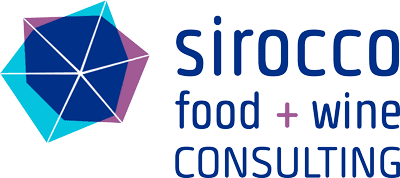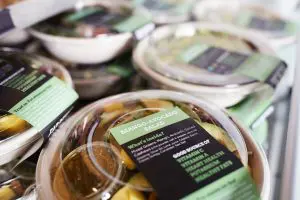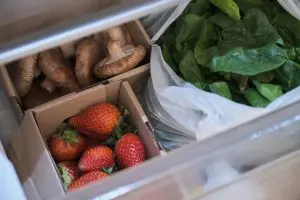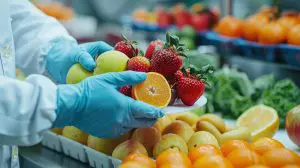Your food business is in the start-up phase. Maybe it’s a side hustle for now, but you know that you have a good food product that sells well. You have been able to secure a meeting with a key buyer for a national grocery chain. The meeting went very well, and you look forward to growing your business. You receive communication from the buyer to kick-start the onboarding process. You review the vendor registration questionnaire, and it asks what level of food safety accreditation your company currently has. If you wonder where to start when facing this question, I hope this article is of help to you. This article is written with the Canadian manufacturer in mind, but the food safety requirements mentioned in the article are very similar if you are based in the States so keep on reading.
To answer the question “what type of food safety certification do I need?”, you will have to ask yourself another two important questions:
- Where do I want to sell my products?
- Who do I want to sell my products to?
“Where” will determine the regulatory requirements, while “who” will determine the customer expectations.
In Canada, there are three levels of government. Your business license will only allow you to sell within your province. The food manufacturing activity will be under the jurisdiction of the local health authority, where usually, only a basic food safety plan covering personal hygiene, sanitation & pest control, temperature control, and minimum Good Manufacturing Practices (GMP) are required. For higher-risk commodities, such as fish or meat, a provincial license may be required. If your goals are to sell outside your province, you are mandated to have a federal SFCR license.
A federal licence can be obtained online with a valid MyCFIA account for a fee of 250 Canadian dollars. The license is renewed every two years. As a federally licensed plant, you are expected to follow all the requirements outlined in the Safe Food for Canadian Regulations (SFCR). Under the regulations, a federally licensed facility must have:
– an effective Preventive Control Plan (PCP) which includes site GMP requirements,
– a Hazard Analysis and Critical Control Point (HACCP)-based food safety plan and,
– a Consumer Protection Plan which covers the food labelling and standard of identity.
Depending on your products’ food safety risks, the SFCR licensing registration may trigger an inspection by the Canadian Food Inspection Agency (CFIA). Once inspected by the CFIA, expect to undergo routine inspections annually or every few years. These inspections are risk-based and conducted by inspectors who specialize in your food sector.
Within the scope of the Good Manufacturing Practices or Pre-requisite Programs to HACCP, the facility is expected to have a written control program addressing the following aspects of the business:
- Supplier approval
- Receiving/shipping/storage
- Construction design and maintenance of premises and equipment
- Personal hygiene
- Training
- Cleaning and sanitation
- Traceability and recall
- Allergens
Similar GMP site requirements are mandatory under almost all existing food safety certifications. It is also required when products are sold in the USA, where regulations are enforced by the Food and Drug Administration (FDA) or the US Department of Agriculture (USDA) for agricultural products. In the United States, a Canadian exporter will need to abide by additional requirements such as addressing the controls identified in a Foreign Supplier Verification Program (FSVP) program developed by the US food importer. The hazard analysis section of your food safety program must also cover food fraud and food defense if you follow FSMA.
Besides the federal requirements, be aware that your food safety plan might also need to address provincial or state requirements, such as the Charter of French Language Requirements in Quebec and Prop. 65 requirements in the State of California.
Now let’s move to the second question: “Who do I want to sell my products to?”
While independent chains/retail stores are flexible on the type of food safety certifications food businesses require, the national chains have a more rigid food safety policy prescribing the certifications their vendors must attain.
For smaller chains, a 3rd party GMP/HACCP certification may be required to attest to federal regulatory compliance. Depending on the checklist your auditor uses, it may or may not include a food defense section. Contact certification bodies offering these audits and request the audit checklist so that you can better prepare for it.
In North America, most of the big names, such as Walmart, Costco, and Loblaw require the supplier to have a valid food safety certificate under the Global Food Safety Initiative (GFSI), which includes many different audit schemes, such as
- BRC Global Standards
- Safe Quality Food (SQF)
- FSSC 22000
- Canada GAP
- BAP Seafood Processing Standard
All schemes are comprehensive food safety certification standards and are equally accepted. There are differences amongst each scheme. For example, while the BRC is a single-level food safety and quality auditing system, the SQF contains two different audit levels for the food processors: level 2 focuses on food safety, and level 3, targets quality and food sensory requirements. Some schemes are specialised and cater to certain food sectors, such as GAP (Good Agricultural Practices) which covers on-farm food safety practices. BAP (Best Aquacultural Practices) is the only seafood scheme that addresses ethical and sustainability requirements.
Your food sector will also dictate what other certification requirements you may need to comply with the national chains. Sustainability certifications might be required for seafood items, ethical audit credentials may be required if ingredients from certain developing countries are used. With culture/religion-related certifications, your vendor may ask for Kosher and Halal certificates.
Some supermarket chains may also have their own food safety requirements on top of the GFSI certifications, such as the Costco or FSMA addendum. Generally speaking, the GFSI certifications are more demanding than the GMP/HACCP audits and include more detailed expectations on how the food safety manual shall be designed, maintained, and verified.
If your business is small, many grocery chains will accept less demanding audit requirements. Costco accepts a successful Costco small vendor audit for the 1st year of supplying food products to Costco. Whole Foods and some other US-based chains also accept the Global Markets Audit Program (GMaP) scheme.
When you decide which customers to sell to, it is important to budget the cost of audits and food safety program implementation. While a smaller one-day GMaP/HACCP audit may cost somewhere between $1000-3000 CAD (includes travel expenses), 2-day GFSI audits can cost much more. Remember also that you will likely need to hire and train a food safety professional to maintain a food safety program that’s certified to GMap, HACCP, or GFSI. A lack of commitment on your part could mean failing an audit or having to undergo surveillance audits every 6 months which will add to the cost of certification.
“As a start-up, how can I prepare for all these requirements?” you may ask. The key to this question is to think about who your ultimate customer is. Here are a few tips to guide you through the decision process so that you can jump-start your venture.
- Try to source your raw materials/packaging/cleaning chemicals from a manufacturer or distributor, who can provide you with technical support, such as food-grade certificates, food specifications, allergen checklists, and technical data (for packaging).
- Build your facility with food safety specifications in mind. Building upgrades can be very costly and may not support the manufacturing of high-risk foods. If a shared commercial kitchen is used, make sure the commercial kitchen is HACCP-certified, which will allow your business to grow.
- Get your food labels done right. Labelling regulations are complex and hard to navigate. Failing to comply with the regulations may block your access to the market or even lead to costly recalls. Learn the requirements or ask a professional to review your labels for errors and non-compliance.
- Focus on developing a good food safety culture from day one. Make sure your employees understand your commitment to food safety and why they must abide by GMP, such as personal hygiene, hand washing, and record keeping. A good food safety culture will determine the outcome of an audit or inspection.
By now, we hope that you have found this article helpful. Lastly, just remember when in doubt, you can always rely on trained and experienced food safety consultants to help you navigate the complexities of food safety certifications and regulations.
Authored by Sean Xia, Edited by Karine Lawrence
Sirocco Food + Wine Consulting provides SQF, HACCP, and GMaP audit preparation services. We also teach accredited courses (HACCP, SQF, PCHF-PCQI) and assist you with your Canadian PCP plans/food label review and US PCHF/FSVP plans. Contact us to learn more.





